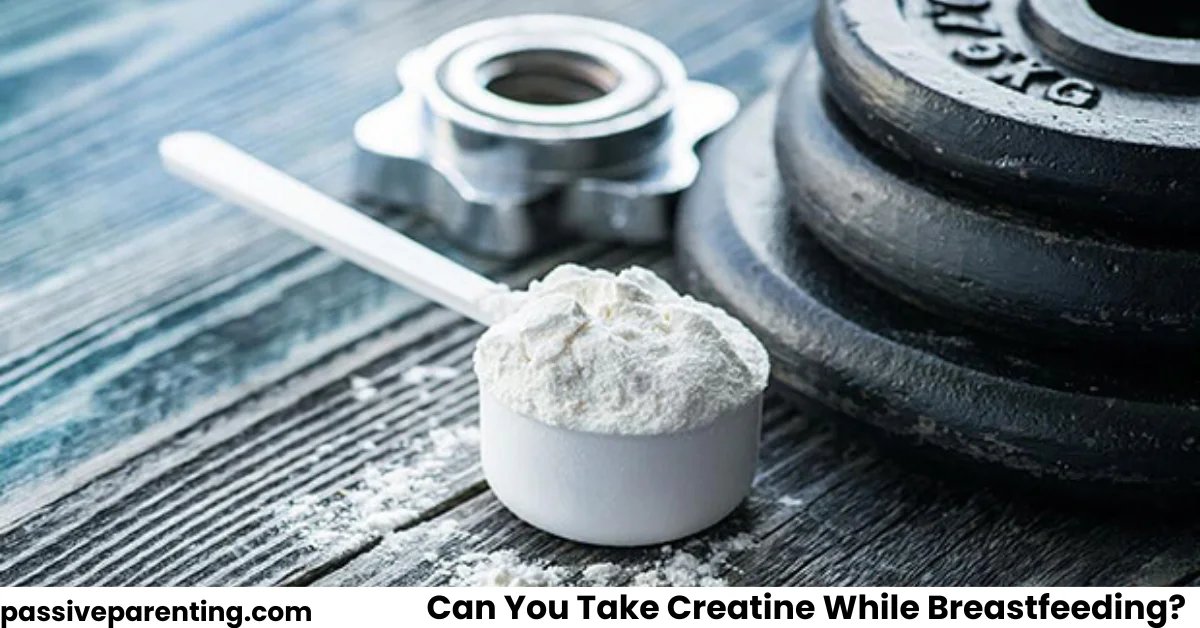Creatine is one of the most widely used supplements among athletes, bodybuilders, and fitness enthusiasts. Known for boosting strength, muscle recovery, and energy production, it’s a staple in gyms worldwide. But when a new mother is breastfeeding, the question arises: can you take creatine while breastfeeding?
This question matters because what a mother consumes may affect her breast milk, and in turn, her baby. While creatine is considered safe for most healthy adults, breastfeeding introduces complexities that require closer examination. In this article, we’ll explore what science says, look at expert opinions, weigh potential benefits and risks, and suggest safer alternatives for nursing mothers.
What Is Creatine?
Creatine is a natural compound found in muscles and the brain. It’s produced by the body from amino acids and is also obtained from foods such as red meat and fish. In supplement form, creatine is usually taken as creatine monohydrate and is recognized for:
- Enhancing muscle performance in high-intensity workouts.
- Improving recovery after exercise.
- Supporting energy production (ATP) in muscle cells.
According to the National Institutes of Health (NIH), creatine is one of the most researched supplements and is generally considered safe for healthy adults when used appropriately. But this research largely focuses on athletes, not nursing mothers.
Can You Take Creatine While Breastfeeding?
The short answer: there isn’t enough research to confirm safety.
While creatine is naturally present in the human body and breast milk in small amounts, the effect of additional supplementation during breastfeeding is not well studied. Health experts typically advise caution with supplements during lactation unless their safety is well established.
For instance, the Mayo Clinic emphasizes that while creatine appears safe for adults, there is insufficient evidence on its effects on nursing infants. Similarly, the American Academy of Pediatrics (AAP) does not list creatine as unsafe but highlights the lack of clear data regarding supplementation while breastfeeding.
In practice, most medical professionals recommend avoiding creatine supplements while nursing, unless specifically prescribed or monitored by a healthcare provider.
Why Mothers Consider Creatine During Breastfeeding
Even though the research is limited, some mothers wonder if creatine could help them during postpartum recovery. The reasons include:
- Energy Support: Breastfeeding can be exhausting, and creatine is known for improving energy metabolism.
- Muscle Recovery: Postpartum fitness routines may feel more manageable with better muscle recovery.
- Mental Clarity: Some studies, such as one published in Neuropsychology Review, suggest creatine may improve cognitive performance under stress.
These potential benefits are appealing, but the lack of clinical trials on breastfeeding mothers means risks remain unclear.
Possible Risks of Taking Creatine While Breastfeeding
While creatine is generally safe for healthy adults, its effects on nursing mothers and infants are less clear. The possible risks discussed below highlight why caution is important.
1. Unknown Impact on Infants
There’s limited evidence on how much creatine passes into breast milk. While naturally occurring creatine is present in small amounts, high doses from supplementation may change breast milk composition in unknown ways.
2. Digestive Issues
Even in adults, creatine can sometimes cause bloating, stomach discomfort, or diarrhea. If these side effects occur in a nursing mother, it could also indirectly affect her baby’s feeding routine.
3. Kidney Concerns
Though creatine is safe for healthy kidneys, concerns exist about long-term supplementation in sensitive populations. According to WebMD, individuals with pre-existing kidney issues are generally advised to avoid creatine.
4. Lack of Regulation
Like many supplements, creatine products are not strictly regulated by the FDA, meaning quality and purity may vary. Contaminated or mislabeled products could pose unknown risks to both mother and child.
Alternatives to Creatine for Nursing Mothers
If you’re seeking the benefits of creatine without uncertainty, there are safer, natural approaches to boost energy and recovery while breastfeeding:
Protein-Rich Foods
Lean meats, eggs, legumes, and dairy provide essential amino acids that naturally support muscle recovery and energy.
Hydration
Breastfeeding increases fluid needs. Staying hydrated helps maintain energy and supports milk production.
Omega-3 Fatty Acids
According to Harvard Health, omega-3s (from salmon, flaxseed, or supplements approved by doctors) support maternal brain function and may benefit infant development.
Postnatal Vitamins
Multivitamins specifically formulated for breastfeeding women ensure adequate levels of iron, calcium, and vitamin D, all crucial for recovery and overall health.
Gentle Exercise
Low-impact workouts such as walking, yoga, or light resistance training help regain strength without overtaxing the body.
Safe Supplement Practices for Nursing Mothers
If you’re considering any supplement, including creatine, here are essential steps:
- Consult Your Doctor: Always discuss with your healthcare provider before starting supplements while breastfeeding.
- Check Labels: Choose products tested by third-party certifiers like USP or NSF.
- Start Small: If approved, begin with the lowest effective dose.
- Monitor Baby: Watch for any changes in feeding, digestion, or sleep in your infant.
Conclusion
So, can you take creatine while breastfeeding? The honest answer is: we don’t know for sure. While creatine is safe for most healthy adults and occurs naturally in breast milk, there is not enough research to confirm its safety as a supplement for nursing mothers and their infants.
For now, the safest approach is to avoid creatine supplementation while breastfeeding unless your doctor specifically recommends it. Instead, focus on whole foods, hydration, and gentle postpartum exercise to regain energy and strength.
With more studies in the future, we may better understand creatine’s role in maternal health. Until then, caution remains the best path for both mother and baby.




